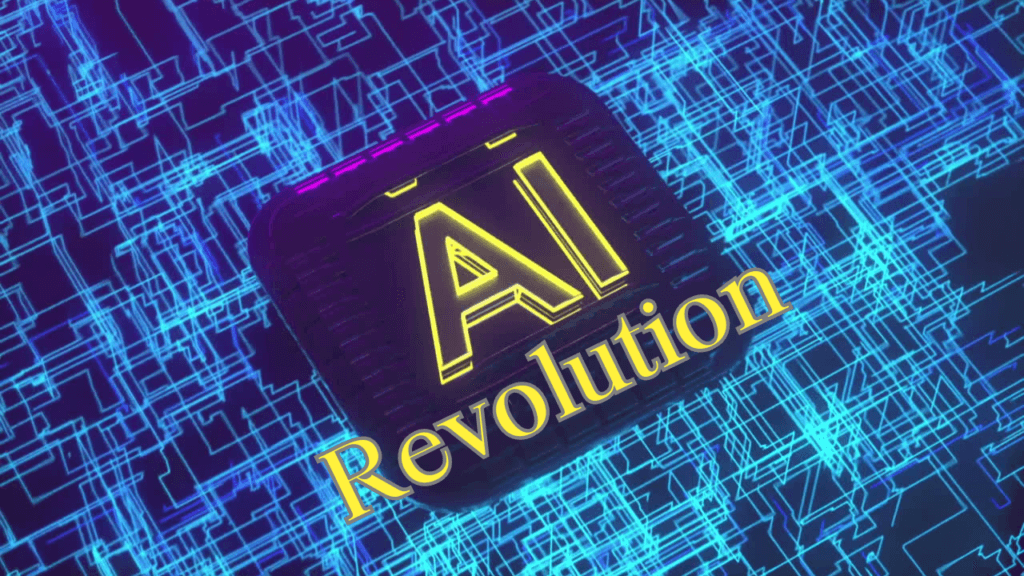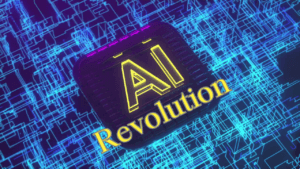AI Revolution: The Catalyst Reshaping Investments, Careers, and Financial Advice
, ushering in what many consider the next industrial revolution. As financial advisors navigate this transformative era, they must grapple with its far-reaching implications for investors, the job market, and the future of work.
AI’s Impact on Investments
The rise of AI has created unprecedented opportunities and challenges for investors. NVIDIA, a leading AI chip manufacturer, exemplifies this trend. The company’s recent financial performance has been nothing short of extraordinary, with revenue surging 94% year-over-year to $35.1 billion in the third quarter of fiscal year 2025[5]. This growth is primarily driven by the booming demand for AI chips and GPUs used in data centers and AI applications across various industries[4].
However, as the initial excitement surrounding AI begins to stabilize, investors and analysts are starting to question the long-term sustainability of this growth. Some concerns include:
- Valuation concerns: As AI chip makers like NVIDIA experience rapid stock price appreciation, there are growing concerns about potential overvaluation.
- Tangible results: Investors are increasingly seeking concrete evidence of how AI investments translate into tangible business outcomes and revenue growth. The problem is sometimes you can’t see the tangible results or companies might not have come up with a way to quantify how AI is or has helped.
- Market saturation: Right now NVIDIA is the leader in this space almost a form of monopoly. It will not be long before the competition catches up and is producing their own versions of what the economy needs and wants. As more companies enter the AI chip market, competition may intensify, potentially impacting profit margins.
The Changing Job Landscape
The AI revolution is not just reshaping investment strategies; it’s fundamentally altering the job market. As AI capabilities expand, many traditional roles are at risk of automation, prompting a shift in the skills required for future employment. Sound Hound AI is already replacing employees by taking orders at fast food restaurants, Lely AI robots are milking dairy cows and Intuitive Surgical has robotics helping surgeons be less invasive with their patients.
Key considerations for the workforce: Some jobs will go away permanently and be lost to the AI Revolution. New jobs will be created. Depending on where you fall in your career path, education and willingness to change may be the key to success.
- AI-proof careers: Young people entering the job market should focus on developing skills that complement AI rather than compete with it. This includes roles that require emotional intelligence, creativity, and complex problem-solving.
- AI programming and management: There will be a growing demand for professionals who can develop, maintain, and manage AI systems. Learning to “program AI” could become a crucial skill for future job security.
- Change in 4 year college education: There could be a shift in education to tech schools to allow more students to be trained directly within trade schools. Jobs such as plumbing, electricians, builders, mechanics etc. are potential areas where AI might have a harder time taking over and completely automating a job.
- Continuous learning: The rapid pace of AI advancement necessitates a commitment to lifelong learning and skill adaptation.
Financial Advisor Perspective
The AI revolution presents both opportunities and challenges: With the advancements in AI, GPUs and computer chips, dreams that once were a someday could potentially become reality in the very near future. This also means that there could be potential failures along the way.
- Portfolio diversification: Technology comes with inherent risk. Advisors must help clients navigate the complex landscape of AI-related investments, balancing potential high-growth opportunities with the risks associated with emerging technologies. Which company is dreaming and which one is producing something that can be used immediately? Understand the risks associated with each.
- Risk assessment: As AI reshapes industries, traditional risk assessment models may need to be reevaluated. Advisors must stay informed about how AI impacts various sectors and adjust their strategies accordingly.
- Client education: Educating clients about the long-term implications of AI on their investments and retirement planning is crucial. This includes discussing potential job market changes and the importance of developing AI-resistant skills. Even the Federal Reserve will need to update their models as AI reshapes the job landscape to understand unemployment and job creation numbers during the AI Revolution.
- Embracing AI tools: Financial advisors and DIYers can leverage AI to enhance their services, from improved data analysis to personalized investment recommendations.
The Road Ahead
While the immediate future of AI-related investments looks promising. The long-term trajectory remains uncertain. As AI technology matures and becomes more widespread, investors and financial advisors must remain vigilant and adaptable.
The key to navigating this new landscape lies in understanding that AI is not just a passing trend but a fundamental shift in how we work, invest, and live. By embracing this change and preparing for its implications, investors and workers alike can position themselves to thrive in the AI-driven future.
The AI revolution represents both a challenge and an opportunity. For investors, it offers the potential for significant returns but requires careful consideration of long-term sustainability. For workers, particularly the younger generation, it necessitates a shift in skill development and career planning. And for investors, it demands a new level of expertise and adaptability through this transformative era.
Citations:
[1] https://soar.wichita.edu/server/api/core/bitstreams/fb807f0f-ad03-4034-9fbf-9f5c7a5544e7/content
[2] https://www.cnn.com/2023/08/06/tech/ai-chips-supply-chain/index.html
[3] https://finance.yahoo.com/news/nvidia-stock-seesaws-following-earnings-beat-strong-outlook-as-age-of-ai-is-in-full-steam-143820941.html
[4] https://hiraku.ai/nvidias-revenue-surge-highlights-the-growing-impact-of-ai/
[5] https://www.investing.com/news/swot-analysis/nvidias-swot-analysis-ai-chip-giants-stock-soars-on-robust-demand-93CH-3752812


